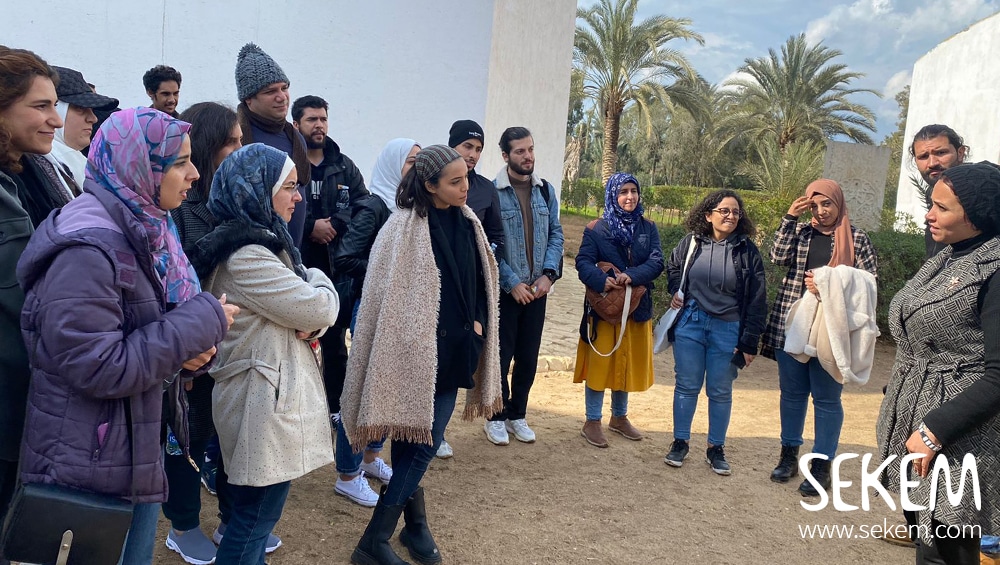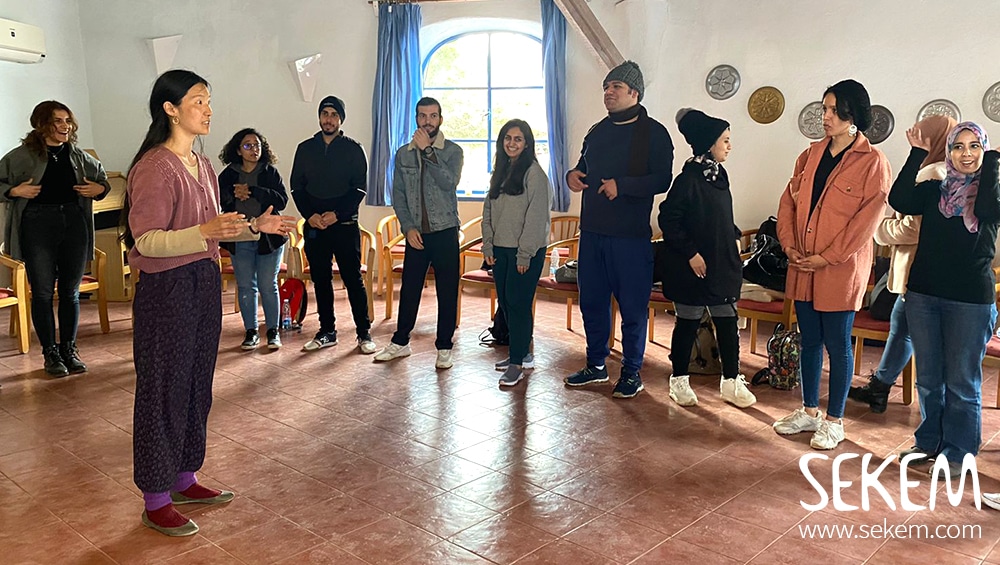From exploring the diverse production lines, the dimensions of ethical business practices and values, to meditating in green meadows, the Tomorrow’s Leaders Graduate (TLG) students at The American University in Cairo (AUC) profited from an experiential learning environment where enterprise and leadership go hand in hand to create durable local communities.
Earlier this year, the TLG students visited the SEKEM farm as part of their planned leadership and civic engagement activities for the Spring semester. The key objectives of the trip were to get introduced to the SEKEM unique module of leadership and sustainable development, and to connect with nature. Students were subjected to SEKEM’s concepts and values on society, culture, economy, and ecology. Each one of these concepts were introduced by the team based on their personal experiences, and how they managed to create a self-sustained holistic community.
The experience was indeed a very intellectual and knowledgeably-rich to all students. Certain aspects of the trip have stood out, and this includes learning in depth about the SEKEM community model. Quoting a student: “I found it rather unique and practical which is what I am looking for. SEKEM’s wholesome ecosystem, based on an encompassing model of sustainable development and leadership, got me very interested and engaged.”

The trip has additionally introduced the students to new leadership skills, as expressed by another student: “I have learned about leadership by example. It is quite amazing how the founders of SEKEM were able to attract other people and get them onboard to create such an amazing place…I also learned that the substantial impact empathy can have on leadership.”
Other students were captivated with the communication and organizational exemplary model that SEKEM has created: “Communication, getting to know the community first and engaging with them to know what can go best for them, being flexible due to the changes that happen are core lessons.”
Last but not least, when the students were asked what they had learned the most, their overall responses revolved around the notion that companies can still profit by empowering communities and acting sustainable. Students had agreed that SEKEM is a live example of an unconventional, creative and a collaborative community. However, there was a demand to give more emphasis during future trips on the gender equality constituent in SEKEM, and learn more about the hardships that SEKEM had faced across the year.
Yasmina El Azazy

